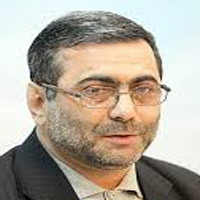Population Variables Effective in the Islamic Republic of Iran’s National Security
Despite the relationship between population and national security, changes in population are far more effective than the very population in the national security. Population changes, affecting culture, society, politics and economy, pose a dramatic impact on the national security, and they affect all components of the former in respect of quantity and quality. The model for density, geographic distribution, age composition and structure, ethnic and religious relation in different cities, border inhabitance and center inhabitance, immigrations and emigrations are of the issues which interconnect the strategic concepts of population and national security. In the same vein, the present study is an applied-developmental research which has been conducted upon survey-description. The population of the study is composed of 30 experts on the national security which is objectively selected; the data is gathered with a researcher-fabricated questionnaire and the validity is confirmed (%99) through Cronbach’s Alpha, and the data is analysed with SPSS. As we dealt with two types of data, parametric and non- parametric, to achieve desirable results for the parametric ones, we used the average method and for the non- parametric ones, we exploited Friedman Test. In this study, the quantitative variables of population including growth, religion, ethnicity and language possess the highest score and the qualitative ones; i.e. experts, sightedness and the cultural values reflect the strongest impact on the IRI’s national security in respect.
-
The Gaza crisis and its impact on the interaction/ Conflict of the structure and agent (Turkey case study)
Hassan Sadeghian *, Mohammadbagher Khorramshad
A Quarerly Journal of Political Studies of Islamic World, -
Revolution and Earth; Agrarian Reforms and Land Policy of Revolutionary Socialist States
Mohammadjavad Moosanezhad *, Mohammadbagher Khorramshad
Studies the State,


